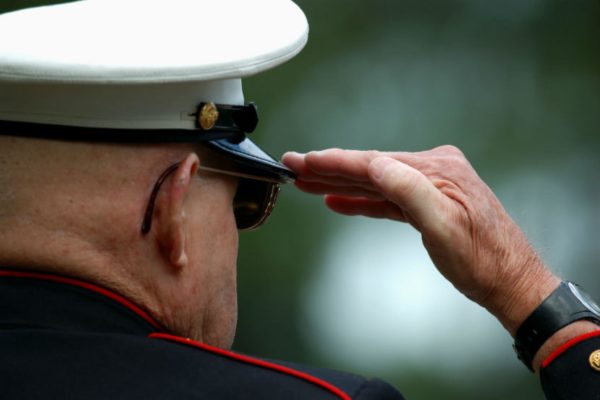Memorial Day is a day when Americans remember those who died in the service of our country. The men and women who made the ultimate sacrifice did so to preserve our security and freedom.
We owe them more than periodic remembrances and statements of gratitude. We owe them an unshakeable commitment to ensuring that current and future soldiers are sent into harm’s way only when the nation’s interests are clearly at stake.
Too often our leaders have sent Americans to die in response to vague threats or in pursuit of unclear purposes. Memorial Day should remind us all to demand better foreign policy leadership.
Our nation’s founders opposed large standing military forces in peacetime because they feared it would encourage leaders to use them frequently. Powerful armies are a temptation for ambitious politicians. The founders also intended for Congress to act as a check on presidential war-making, requiring a majority vote for declarations of war. President George Washington articulated this wisdom in his farewell address of 1796, calling for America to avoid permanent alliances, enmities and foreign wars.
These assumptions dominated American policy for most of the nation’s early history. But after World War II, and with the onset of the Cold War, the United States took a very different course. To contain communist aggression, Americans supported the largest peacetime military in the nation’s history – more powerful than nearly any other. To enable crisis decision-making, as in the Cuban Missile Crisis, Congress ceded war-making to the president.
Many of these policy changes were necessary. They made our country and our allies safer. Nonetheless, since 1945 it has become easier for American presidents to deploy forces abroad, often without clarity of purpose or strategy. In Vietnam, almost 3 million Americans served, and more than 58,000 died. Lyndon Johnson and Richard Nixon were never clear about why Vietnam mattered and what we were fighting for.
The same can be said for Iraq, where more than 1.5 million Americans served and 4,474 died. Why were American forces sent to depose Iraqi dictator Saddam Hussein? Where were the alleged “weapons of mass destruction?” Where was the connection between Saddam and the Al Qaeda terrorist organization?
The men and women who served in Vietnam, Iraq and other wars showed courage and patriotism. They followed orders. But they deserved better. Their missions were noble, but they failed because the wars were not clearly connected to national interests. Our soldiers did not know why they were fighting, and it was therefore almost impossible to formulate an effective strategy. How can you win if you do not know what winning is?
Perhaps these wars had worthwhile purposes, and perhaps they could have been conducted more successfully. The absence of a clear definition of interests by civilian leaders – Presidents Lyndon Johnson, George W. Bush and others – made it impossible to set appropriate and consistent battlefield priorities. This was particularly true in difficult counterinsurgency conflicts where the native resistance had a clear goal (expel the occupier), and the American occupation army was uncertain whether and why it wished to stay.
Today, more wars similar to Vietnam and Iraq are likely. We face a series of potential conflicts around North Korea, the South China Sea, Syria, Ukraine and Iran. The spread of the Islamic State group and other terrorist groups also draws intensive American military attention.
The inexperienced and understaffed foreign policy team around President Donald Trump is increasing the size and aggressive posture of the military, while at the same time cutting tools for diplomacy, multilateral cooperation and international aid. When confronted by its first major foreign policy crisis, which will happen soon, the current administration will turn to the military and deploy troops. The numbers will start small, and they will grow as threats metastasize and the expectations for quick American victories escalate.
This is our history. It is also our present and our future.
As a global power, we cannot turn back to a time of small armies and infrequent American wars abroad. Let us instead use this Memorial Day to prepare for the foreign policy challenges we have recently neglected by asking our leaders to clearly articulate our national interests and define our priorities.
We can then demand that future service members are sent into battle only when their efforts are truly vital for the nation’s security and freedom. This does not require isolationism, but instead a more deliberate, careful and well-planned use of American force. We owe those who have already given their lives for our country nothing less.
Jeremi Suri holds the Mack Brown Distinguished Chair for Leadership in Global Affairs at The University of Texas at Austin. His newest book is “The Impossible Presidency: The Rise and Fall of America’s Highest Office.”
A version of this op-ed appeared in the Houston Chronicle, Dallas Morning News, Waco Tribune Herald, McAllen Monitor, Psychology Today, San Antonio Express News and the Austin American Statesman.
To view more op-eds from Texas Perspectives, click here.
Like us on Facebook.




